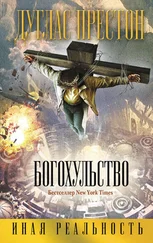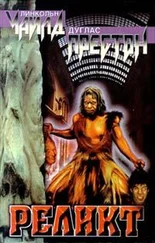Despite appearances to the contrary, Jennie is a work of fiction. However, there is no science fiction in this book. The scientific and behavioral experiments described here actually took place, under different circumstances, with the results as reported.
Many readers of this book, no doubt, will have heard of Jennie Archibald or will remember the details of her life as reported in the press during the period of 1965 to 1975. As a boy growing up in Wellesley, Massachusetts, I myself recall reading about Jennie in the Boston Globe and other papers. The stories I read had a special meaning to me, since the town of Kibbencook, where she lived, lies only eight miles from Wellesley. I remember my parents discussing Jennie at the dinner table. When I egregiously misbehaved, my mother more than once compared my behavior to Jennie. Jennie became, in a small way, a symbol of willful disobedience in our household.
I decided to write a book about Jennie three years ago, while working on a story for Massachusetts Magazine about the Boston Museum of Natural History. I had the pleasure of interviewing Dr. Harold Epstein, a retired curator at the Boston Museum. During the course of the interview the conversation shifted abruptly to the subject of Jennie, and it required a considerable effort to return to the topic of my article. This was when I first learned many of the unpublished details of Jennie’s life. I was intrigued. Dr. Epstein was anxious to talk and so I scheduled a second interview with him later that month. That was the genesis of this book.
Why write a book about something that was already extensively covered in the press? The answer is quite simple. The more I delved into the subject, the more I realized that what was reported in the press was at best only a small portion of the story. With few exceptions the articles were rife with inaccuracies, distortions, sensationalizing, and, in several cases, actual falsehoods. Most “science reporters” for newspapers and magazines did not have the scientific background to understand the ramifications of the story. Those involved with the story of Jennie’s life were anxious to correct the record.
Finally, the results of the “Jennie” research have been attacked by a group of cognitive scientists who (in my opinion) did not look at the results of the project as a whole . None of these ethologists actually met Jennie. Their attacks have been based on a detailed analysis of a two-hour segment of videotape. This book tries to present the other nine years of Jennie’s life.
At first I planned to write a straightforward book with the usual omniscient authorial voice. As I compiled my interviews and read through the Archibald papers, I began to realize that the major players in this drama were not average people. They were highly educated, intelligent, and almost without exception very articulate. As their words unfolded and the full dimensions of this extraordinary story were revealed, a conviction grew on me: there was no need for me to tell the story. Instead, in this book, I have let the people themselves speak. I have merely acted as an editor. I have kept my interpolated comments, which appear in brackets, to a minimum.
My first source was the posthumously published memoirs of Dr. Hugo Archibald, Harkison Curator of Physical Anthropology at the Boston Museum of Natural History and Adjunct Professor in the Department of Zoology at Harvard University. I did not have the opportunity to talk to Dr. Archibald. He tragically passed away in 1991, not three weeks before a scheduled series of interviews with him were to begin. His memoir, Recollecting a Life , was evidently based on an extensive journal that he kept for much of his life. Unfortunately, extensive efforts to locate this journal failed, and, in fact, there is reason to believe he destroyed it shortly before his death. I might also add here that it is not the intention of the present work to explore or even address the somewhat puzzling circumstances surrounding Dr. Archibald’s untimely death.
The extracts from Dr. Archibald’s memoirs have been supplemented by interviews with his colleagues and family members. All interviews were taped by myself and have been reproduced with editing only for clarity and economy. With the exception of the description of the home movies at the end, none of the words herein are my own.
It is important to point out that not everyone involved with the story agreed to be interviewed.
During the course of the interviews, several people expressed doubt regarding my motives or “point of view.” Let me say that I, personally, have no point of view. Those who read this book must judge for themselves what really happened and why. I am aware there are several instances where interviewees contradicted each other’s accounts. Many hours of interviews did not resolve some of these contradictions, and I therefore can make no claim to know where the real truth lies, or whether, in fact, this book indeed presents the truth.
I am grateful to Harvard University for permission to quote from the Archibald papers; to the Boston Museum of Natural History, to the Center for Primate Studies at Tufts University; to the Tahachee Center for Primate Rehabilitation; and to the Archibald family, particularly Lea Archibald and Alexander Archibald.
[FROM Recollecting a Life by Hugo Archibald, Ph.D., D.Sc., F.R.S., published by Harvard University Press. Copyright 1989 by The President and Fellows of Harvard College. Used with permission.]
The Cameroons, April 15, 1965
I will not soon forget the day the two Makere men brought the chimpanzee into camp. The animal was slung over one man’s shoulder and a thin rivulet of blood trickled down the shining hollow of the man’s back, black blood glistening against black skin. I watched him through the half-open flap of the tent. He stopped in the clearing in front of the tent and slid his burden sideways on to the hardpacked dirt, where it lay with arms crossed. His friend stood next to him. Both their feet and legs were white with dust to the knees. The man straightened up and clapped his hands twice, sharply, to announce their arrival. I waited. The men knew I was in the tent, but to show myself too quickly would make negotiations over the price more difficult. I soon heard Kwele shouting at the visitors in Pidgin, the lingua franca of the Cameroons.
“Whah you done bring, hunter man? Na bad beef dis!”
Kwele was a fine negotiator. We had worked out an excellent system of softening up the seller.
“Masa no want dis beef! Masa done get angry too much. Go away!”
All this was part of the routine, and Kwele relished his role a great deal, perhaps a little too much. Naturally, I was excited by the prospect of acquiring the skull of a female chimpanzee. A small group of camp assistants had dropped their work and converged on the scene, with that look of boredom mixed with the faint hope that something unexpectedly unpleasant might happen. The two men stood behind the animal, stubborn and silent.
I moved aside the flap of my tent, without getting out of my chair. The shouting stopped and Kwele stood there grinning, holding a shovel.
“Eh!” he said. “Dese hunter man got um beef. Masa no want dis beef?”
I smiled and clapped my hands softly, as etiquette required. “Iseeya, hunter man,” I said.
“Iseeya, sah,” they said in unison. They were thin, with a delicate tracery of tattoos on their abdomens and around their nipples. One carried a tiny crossbow with a fascicle of darts.
Читать дальше












